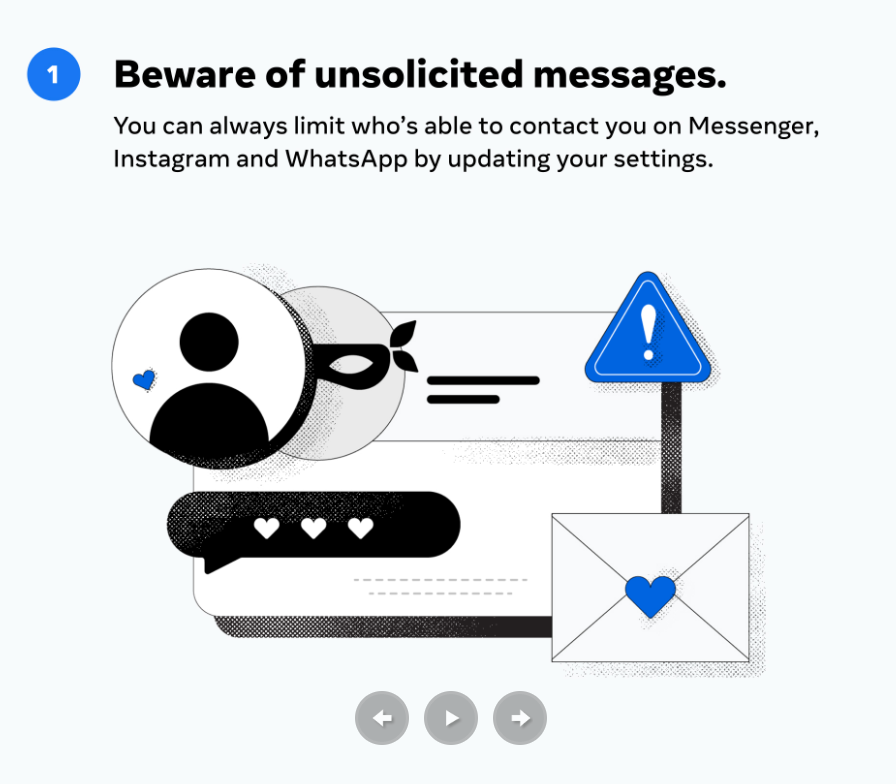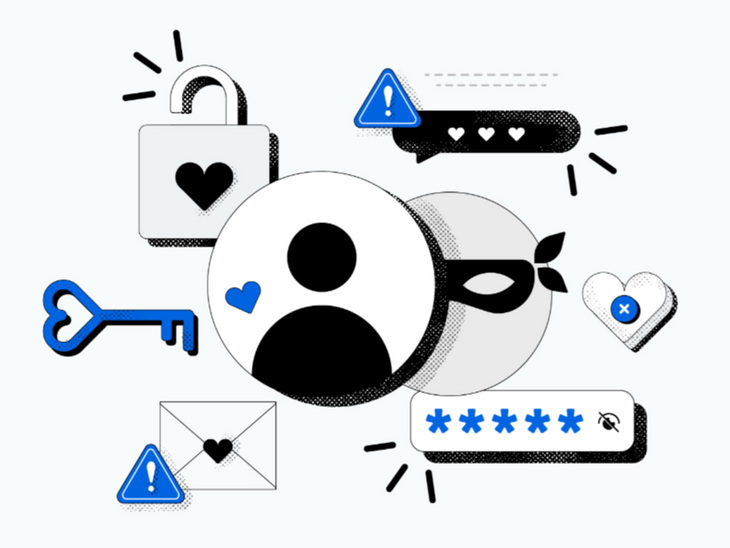- English News
- Tech science
- Love Is In The Air—so Are Scammers Meta Shares Must know Tips To Avoid Valentine’s Day Frauds
With love in the air, scammers are working overtime to exploit people seeking genuine connections. This Valentine’s Day, Meta rolls out safety tools across Facebook Messenger, WhatsApp, and Instagram to help users stay protected from romance scams.
Scammers often take advantage of holidays and global events to deceive unsuspecting users. That’s why, as part of their global anti-scam awareness campaign, Meta is sharing crucial insights, enforcement updates, and practical tools to help people recognize and avoid these scams.
What are romance scams?
Romance scams occur when fraudsters pose as attractive, wealthy, and single individuals—often claiming to be military personnel or business executives. These scammers send messages on dating apps, social media, and discussion forums, hoping to lure victims into emotional connections.
Once trust is built, they fabricate emotional or financial emergencies, requesting money or proposing fake investment opportunities. Their goal? To exploit people’s emotions for financial gain.
Common romance scams to watch out for

1. Military impersonation scams
Fraudsters pretend to be military personnel, posting about loneliness and searching for love. They target users on Facebook, Instagram, Threads, TikTok, Pinterest, YouTube, and Quora. Once engaged, they invite victims to chat on WhatsApp, Telegram, Signal, or Facebook Messenger—often using Nigerian phone numbers.
These scammers commonly request money for “travel expenses” or “romantic gifts”, typically via wire transfer or online gift cards.
2. Celebrity romance scams
Scammers pose as celebrities, targeting people in the U.S., UAE, Japan, and beyond. They infiltrate fan groups and comment sections on YouTube, Facebook, Instagram, TikTok, and X, claiming they are “looking for love.”
Once a connection is established, they shift conversations to private messaging apps like WhatsApp, Signal, or Telegram. Victims are then asked to send money via cryptocurrency exchanges, wire transfers, or gift cards—often under the false pretense of helping the celebrity out of financial trouble.
3. Fake matchmaking agencies
A group of scammers linked to Kenya has been caught running fake dating agencies, luring victims on Facebook, Instagram, WhatsApp, and Telegram. They promise connections with wealthy bachelors from Western countries or potential partners in Africa.
Victims are directed to WhatsApp groups or Telegram channels, where they’re asked to pay a “membership fee” to receive contact details of their so-called match.
How to stay safe?
To protect yourself from romance scams:
- Be cautious of online relationships that progress too quickly.
- Never send money or personal information to someone you haven’t met in person.
- Look out for inconsistencies in their stories.
- Verify identities by reverse-searching profile images.
- Report suspicious accounts immediately.
Click Here For The Original Source.

